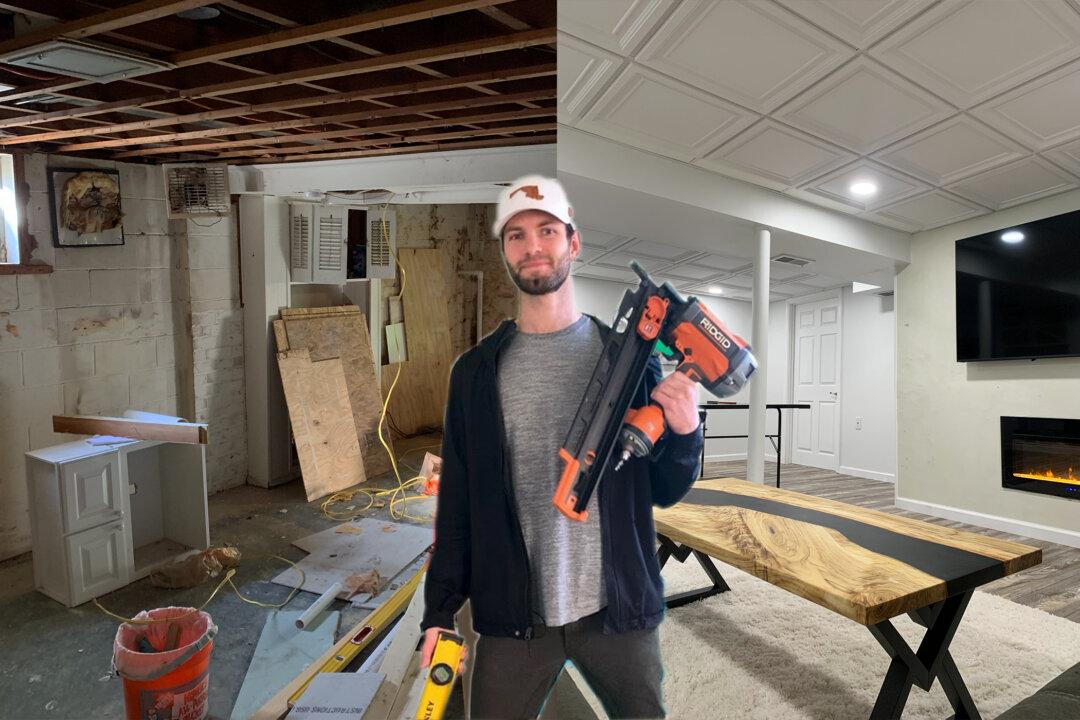A man has transformed the run-down basement of his fixer-upper home single-handedly after learning the skills he needed from the internet, saving approximately $30,000 in the process.
Engineer Andrew Thron, 30, from Maryland, bought a 1,100-square-foot house in need of renovation around four years ago. With being stuck at home during the lockdown, he decided to begin to work on the project by himself, learning everything he could from the internet and documenting the process to share on his YouTube channel. After trials, errors, and successes in the other rooms of the house, Mr. Thron took on the basement.





